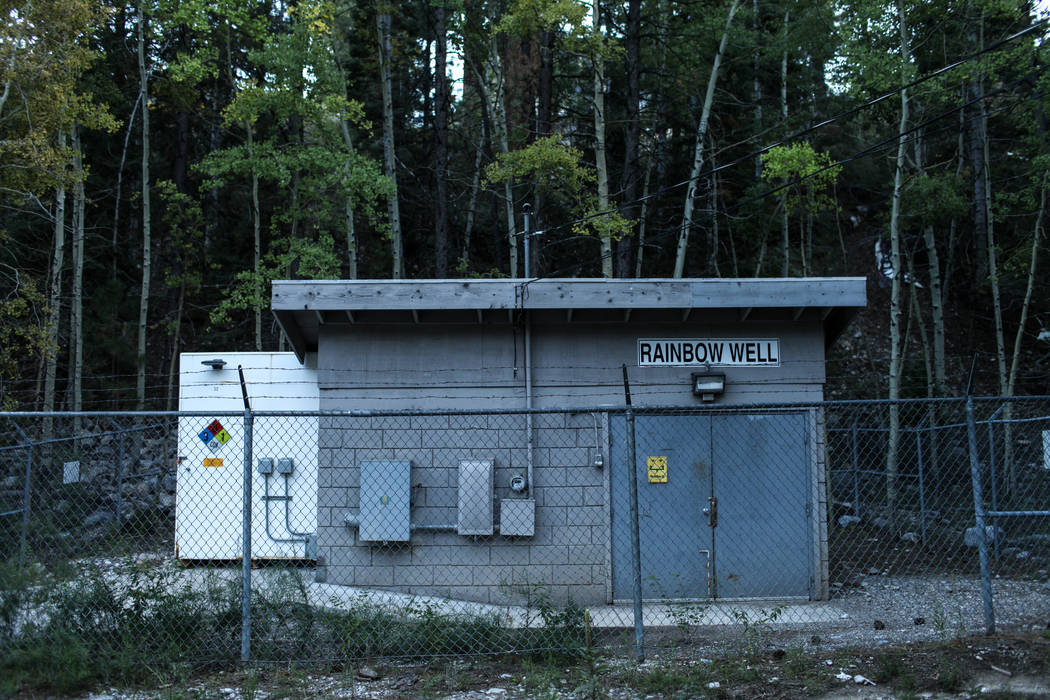Officials find way to de-ice Mount Charleston roads without endangering water supply

With winter on the way, Clark County officials have settled on a way to clear snow and ice from the roads on Mount Charleston without endangering the water used by residents.
The Las Vegas Valley Water District, which operates the water system in Kyle Canyon, has begun adding an anti-corrosion agent to the well serving the Rainbow Subdivision to counteract the effects of de-icing salts that are washing off the roads and into the water supply.
The county says the move will allow road crews to keep using salt to clear away ice and keep traffic moving safely.
Chloride levels in the Rainbow Subdivision’s water well have spiked in recent years, making the water more corrosive and causing lead to leach from old plumbing fixtures in some mountain homes. The water district discovered the problem earlier this year when water samples from three homes tested positive for lead above federal safety limits.
That prompted the district to send out an alert to all of its roughly 400 customers on Mount Charleston.
No lead was found in the water at Lundy Elementary School in Kyle Canyon, but subsequent testing at 134 residences in the area identified two more homes with levels of the toxic metal above the federal limit, said water district spokesman Bronson Mack.
The district began treating Rainbow well water last week with zinc orthophosphate, a “corrosion inhibitor” designed to balance out the chloride, Mack said.
The Nevada Division of Environmental Protection signed off on the new treatment process. “It is the same product we use in the Las Vegas Valley to keep the water safe for 2 million residents and 40 million annual visitors,” Mack said.
In response to the lead scare, the Nevada Department of Transportation announced it would no longer use a salt-based product called Ice-Slicer on the highway uphill — and upstream — from the Rainbow Subdivision.
County road officials also considered discontinuing the use of road salts but opted against the idea after the water district decided to add anti-corrosive chemical to the well.
“Following discussions with the Mt. Charleston Fire Department and Metro Police, the county will continue to maintain the roads on the mountain as we have before, including using de-icing products on the roads when necessary,” county spokesman Dan Kulin said in a written statement. “Public safety remains our priority on the mountain and this practice makes our roads safer for our first responders, residents and visitors alike.”
Roughly 300 tons of the de-icing salt has been dumped on the mountain each winter since state and county road crews began using a more concentrated form of the product about five years ago.
As a result, Mack said, the water in the Rainbow well shows seasonal increases in chloride levels that coincide with periods of snowmelt on the mountain.
Some researchers and mountain residents also blame de-icing salt for weakening and killing trees along the highway and in some neighborhoods.
Contact Henry Brean at hbrean@reviewjournal.com or 702-383-0350. Follow @RefriedBrean on Twitter.